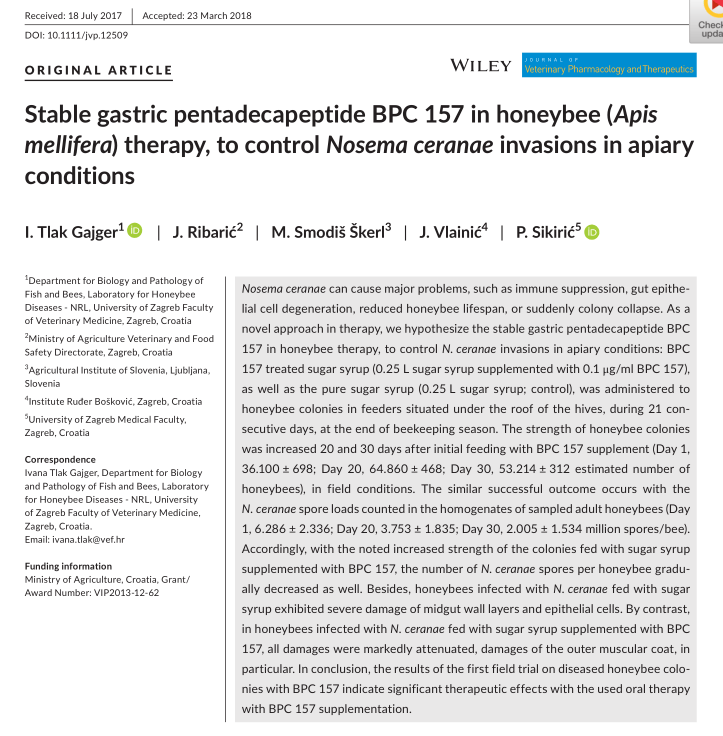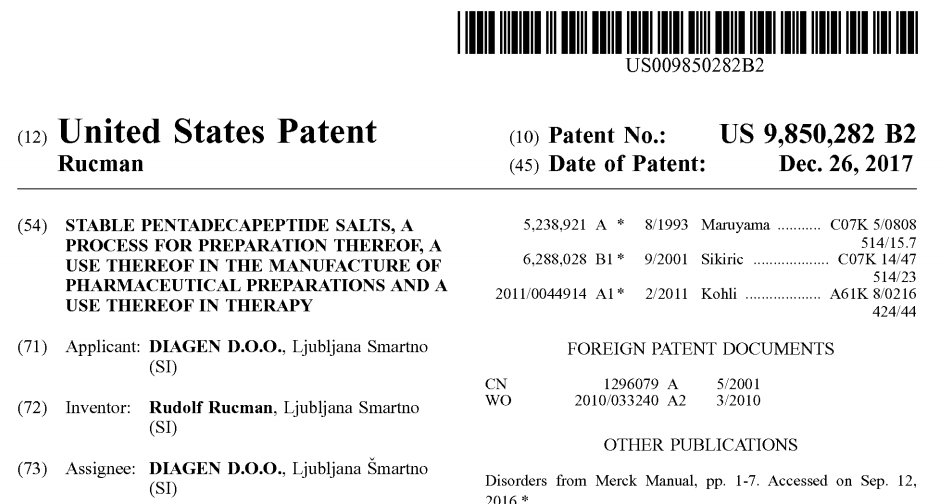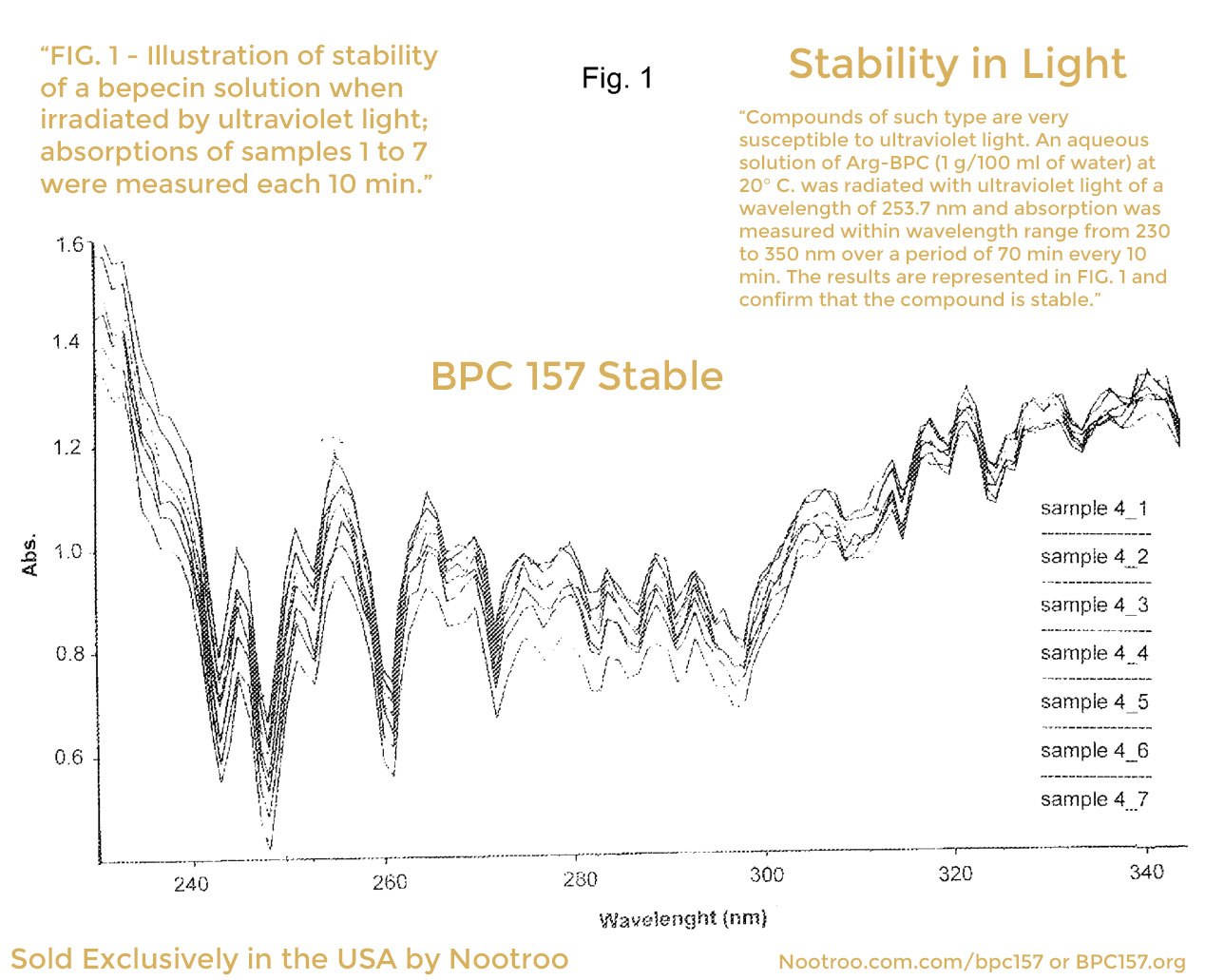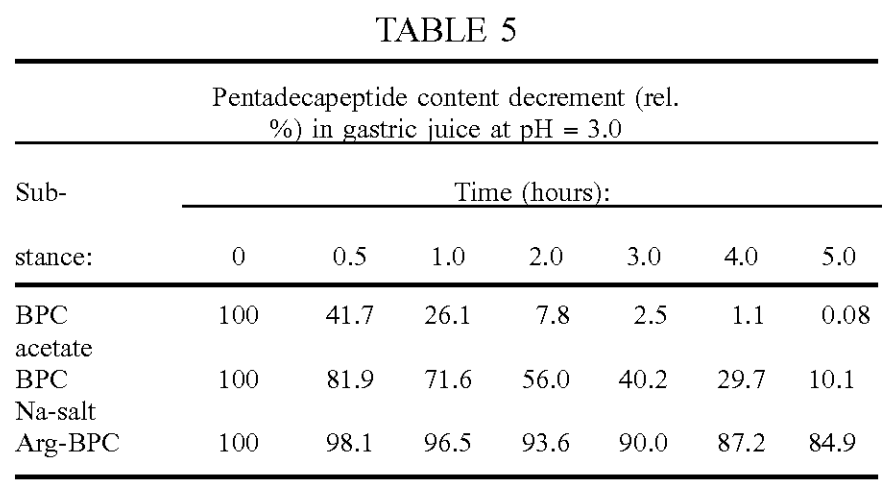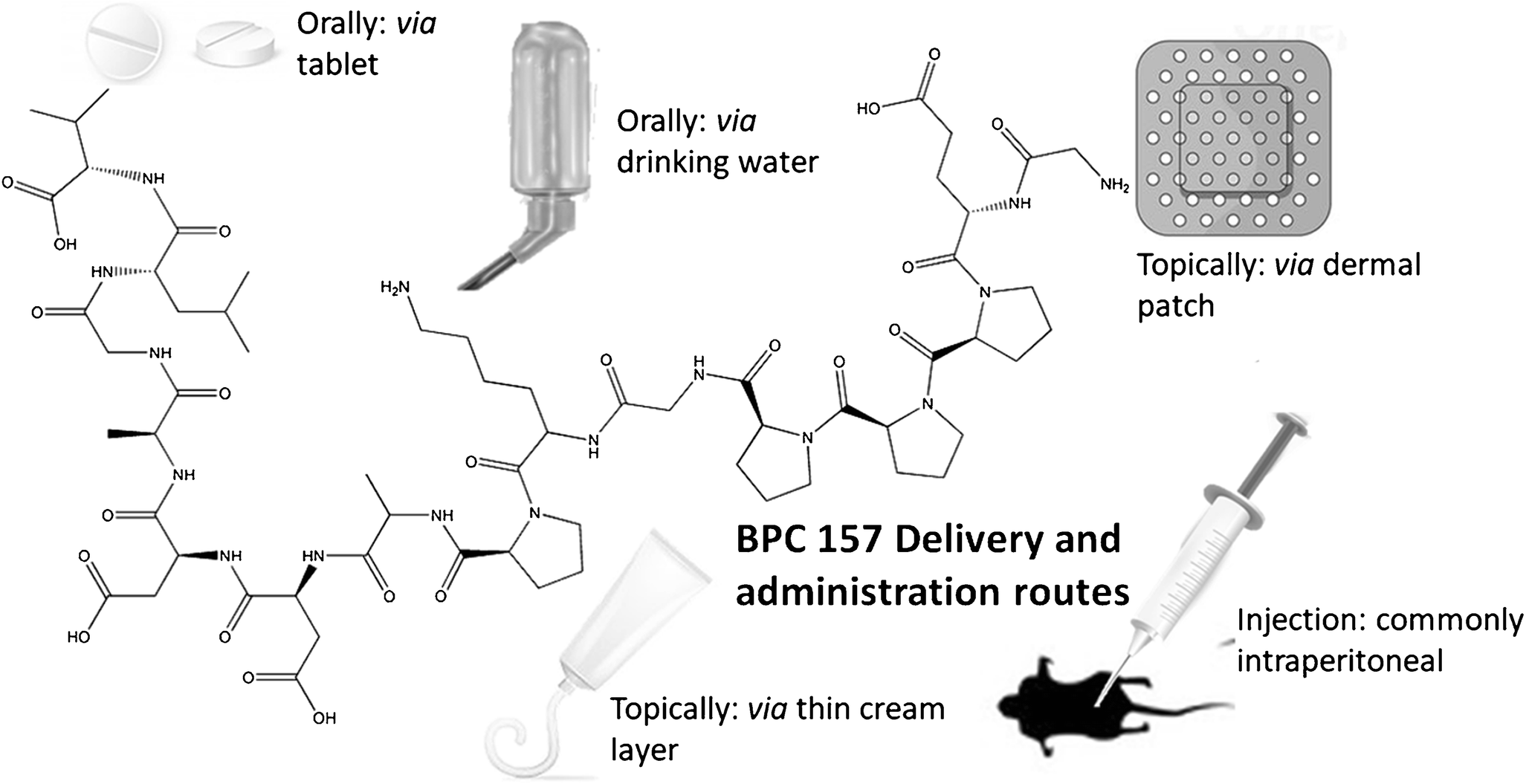BPC 157 is a peptide sequence found within a protein in the gastric juices of humans that helps the body activate its innate healing processes. BPC 157 is a 15 chain amino acid fragment that is derived from the larger BPC protein that is found in humans. Researchers found that “this fragment retained practically all effects of the natural BPC protein” and was “most responsible for the biological activity of the entire protein.”
All of the BPC 157 you see sold elsewhere is either in the free form or acetate form. The problem with these forms of BPC and many other peptides is that they are not stable at high temperatures such as those found in the body and are especially unstable in the high pH environment of the stomach. They can also be destroyed by UV light.
To counter these shortcomings the original developer and patent holders of BPC 157 made a form known as BPC 157 Stable Version which is BPC reacted with the amino acid L-arginine to form a salt. This salt form, BPC 157 Stable Version, is stable for longer at higher temperatures and in higher pH levels. It is also stable in UV light.

